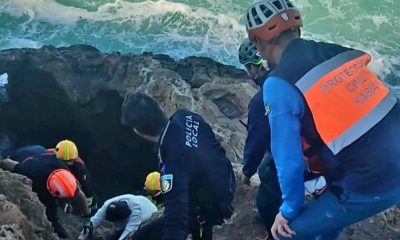Costa Blanca
Ale-Hop is getting ready to expand internationally
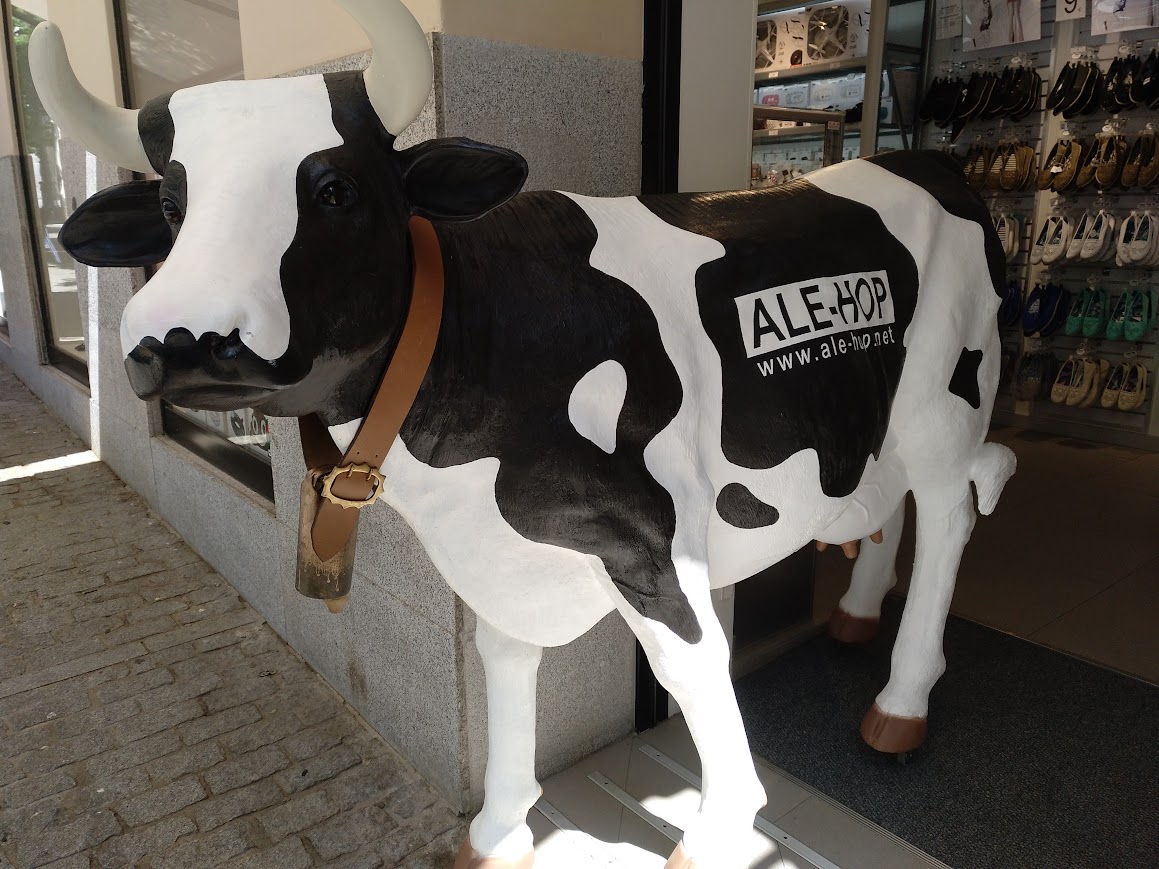
While Ale-Hop is based in Dénia, its main office is now in the province of Valencia. The company is looking at many countries with the goal of settling down with its famous cow in the near future by opening new stores and starting new businesses in the countries where it came from, using the group’s current structure to its advantage. In 2024, the Clave Dénia company was accepted as a member of the Forum of Renowned Spanish Brands (FMRE) as a brand with high international potential. This “solidified its commitment to excellence and strengthened the image of Spain in the international market.” Ale-Hop is getting ready to reach new goals and horizons in the international arena. It is continuing to strengthen its place in the national market and is also starting to sell its products in international markets like Portugal, Croatia, and Italy.
The business group’s sales rose by 31% to 224 million in 2023, the most recent available financial year, and it had more than 300 places of sale, bringing them back to levels seen before the pandemic. Besides that, the business made a net profit of 41 million euros. That being said, the group’s tax payment, which was 61 million euros in 2023, also stands out. In the same year, the first Mondo Vesta store opened. It was 1,600 square meters and sold “furniture, decoration items, gifts, household goods, home goods, as well as perfumery and cosmetics items.” This was made possible by the creation of a new company through a holding company.
The goal for them was to keep opening more stores all the way through 2024. They brought their famous cow to Italy “in search of new pastures” with an Italian company in the group. This helped other projects outside of Italy. The Italian store had a good first year, but they were “satisfied with the turnover, although we need to continue learning and improving in different fields.”
Any way you look at it, not having to depend on banks gives them the freedom to grow and make investments without having to borrow money. The group also planned to put more money into solar energy in 2024 through the Grimalt Obras y Servicios company. They also planned to open 25 to 30 new stores, which would be run by one of the group’s companies based on where they were located.
Getting bigger in the province of Valencia
A lack of land for supplies caused the Grimalt family to move from Dénia to Bellreguard. Since then, the family has been growing in the province of Valencia. Indeed, they have already talked about the “Activa Safor” project, which will give the Ale-Hop group a place to store goods, work, and do study for their business. A deal was made between Grimalt Patrimonial (Ale-Hop) and the town councils of Gandia and Bellreguard in Valencia to study, run, and grow this long-term strategic investment project. So, it would include setting up and advertising a transportation platform, offices, and an R&D&I centre for Grimalt Patrimonial’s business activities at the point where the municipalities of Gandia and Bellreguard meet.
The Ale-hop company is building a strong, smart and long-lasting base to become a consolidated international giant. Its fourth storage centre, which is in the El Brosquil industrial estate in Oliva, fits into this picture. It adds the ones that are already there in Bellreguard, Ondara, and Pedreguer. It can be reached from the N-332, the Pego road, and the AP-7 link. All of them, mostly in La Safor and Marina Alta. The company finished building the warehouse last year. It covers 17,800 square meters, has 13 loading and unloading docks, and can hold 31,000 boxes. The warehouse is on a 30,000-square-meter plot of land.
Discover more from Costa Blanca Daily
Subscribe to get the latest posts sent to your email.
Costa Blanca
Man arrested in connection with five fires at La Florida, Alicante
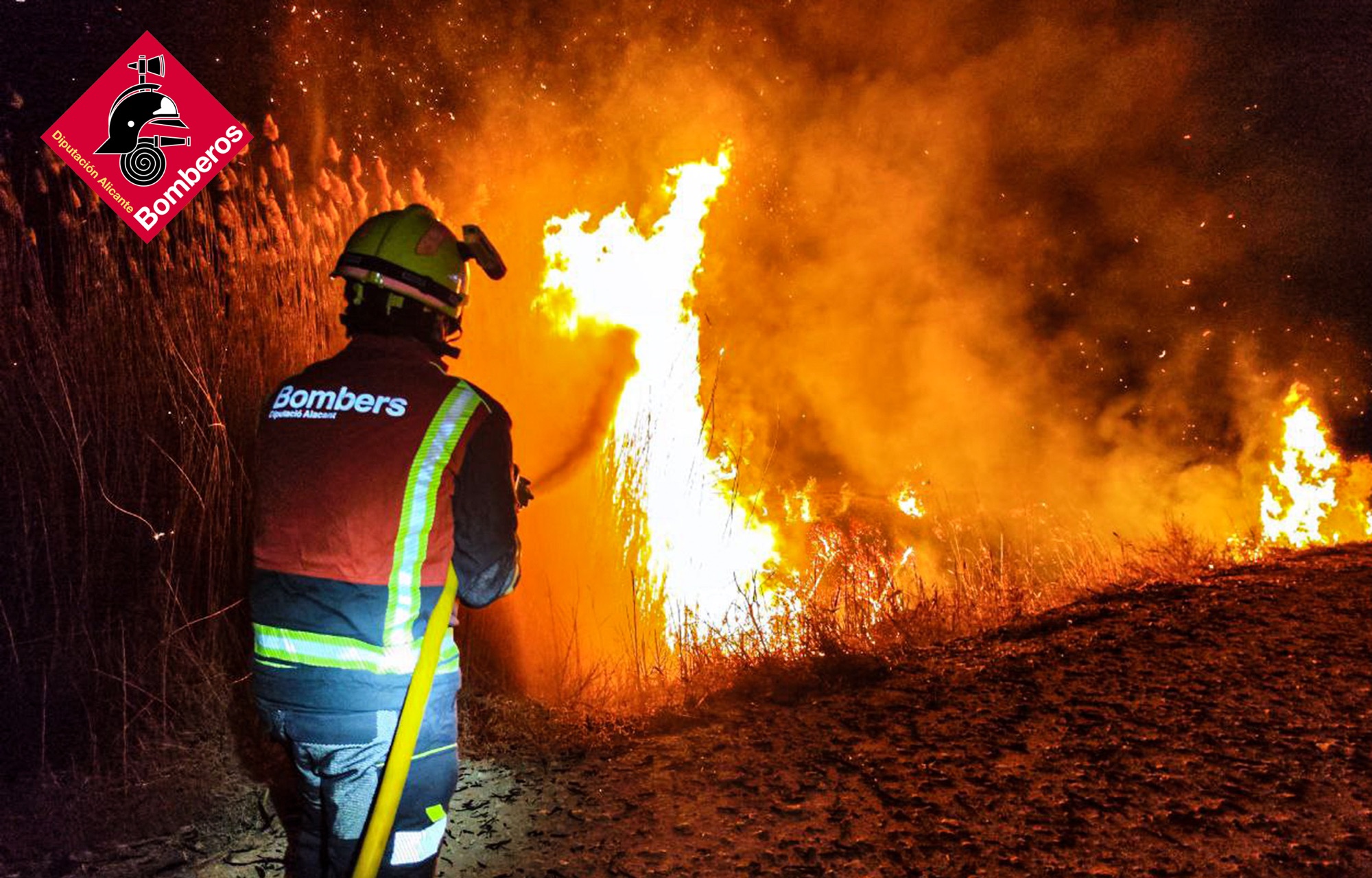
The culprit behind five fires in the Valencian town of Mislata in Alicante has been taken into custody by National Police officers. The fire caused substantial property damage and necessitated medical attention for smoke inhalation.
The National Police were notified of many simultaneous fires that were erupting in multiple spots within the La Florida-La Viña neighbourhood at midnight on March 25th. Personnel from the Alicante Fire Station and members of the Provincial Citizen Security Brigade were also sent to the several locations.
A number of vehicles were also impacted by the fire, which caused significant damage to many of them and entirely burnt one due to the ferocity of the flames, which in every instance had begun in waste containers.
Containers and cars caused the fire to spread to the building façade, putting the occupants of surrounding residences in danger. Firefighters rescued a blind woman who was unable to leave her home, and residents of many residences, including those in a game room, were forced to flee.
Because of the perilous circumstances, the massive volume of smoke, and the spectacular character of the flames, some people needed medical assistance for anxiety attacks and smoke inhalation. The signs of two nearby companies were also materially damaged, as was the façade of these buildings.
The inquiry was taken over by judicial police officers from the Alicante Central District Police Station, who carried out a number of investigations to confirm the timeline and ultimately identify the alleged fire offender.
Officers found the offender in the Valencian town of Mislata after doing the necessary investigation, and he was taken into custody on charges of arson and destruction.
Eleven rubbish and recycling containers worth 17,500 euros were damaged in the fire, along with seven cars, one of which was totally destroyed.
Following police investigations, the 42-year-old inmate was sent before the Mislata Court of Instruction on duty, where he was given an imprisonment order.
Discover more from Costa Blanca Daily
Subscribe to get the latest posts sent to your email.
Costa Blanca
First aid training to local police is signed by the Dénia Council and Benidorm Hospital Clinic
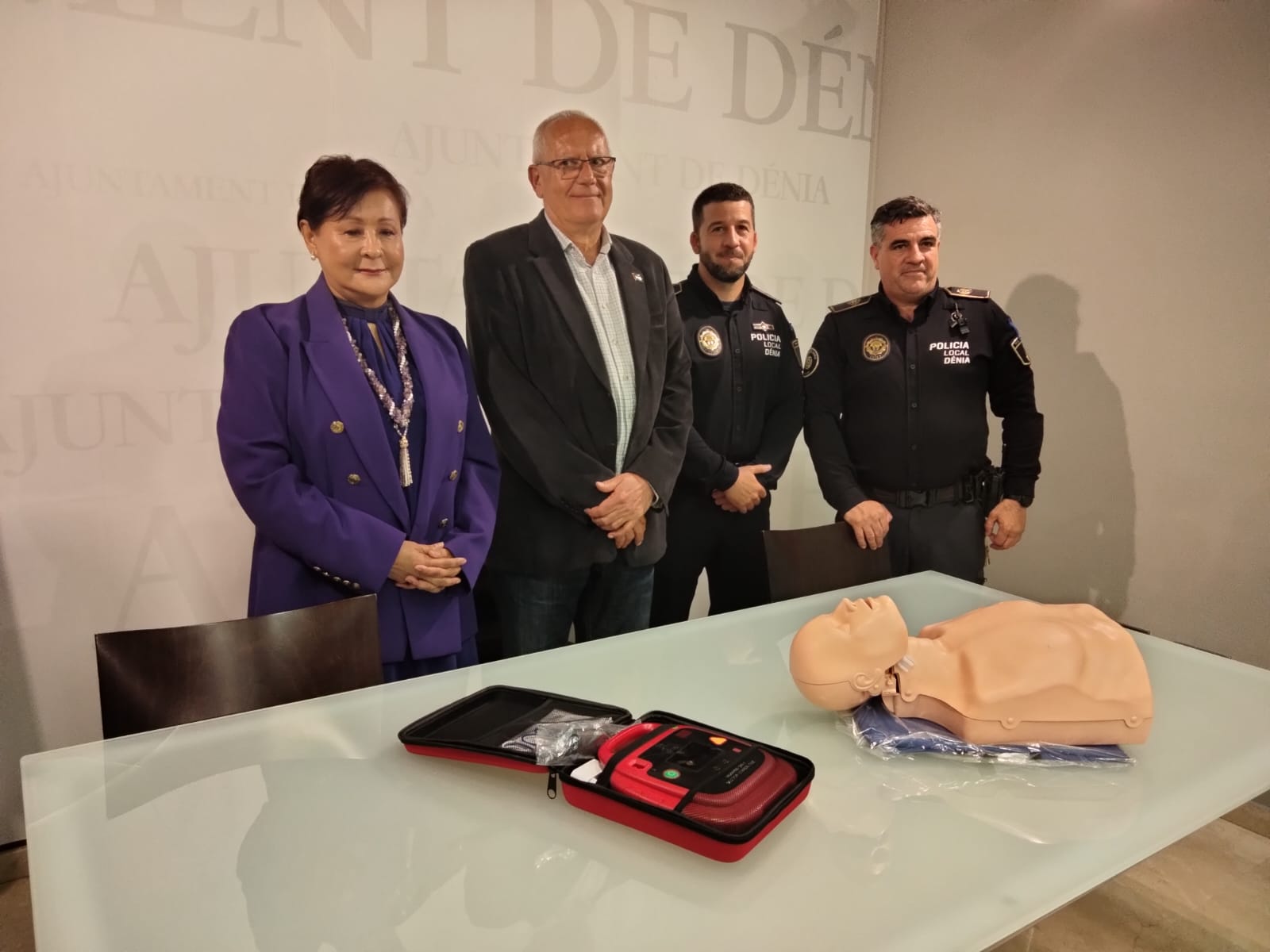
Vicent Grimalt, the mayor of Dénia, and Ana Vasbinder, the director of the Benidorm Clinical Hospital, signed a cooperation agreement this Tuesday to plan training exercises for the Local Police in the areas of accident or health-related assistance, prevention, and first aid.
The technical tools required for the training, including a mock defibrillator and a dummy to simulate resuscitation techniques, were also supplied by the Benidorm Clinic Hospital, which has operated in Dénia for three years.
The first term of this arrangement will be four years.
The materials “will be used immediately in the road safety and first aid classes” that the force conducts in the city’s schools, according to Jovi Estruch, Chief Superintendent of the Dénia Local Police. Additionally, the first course that will be offered as a result of this partnership with the HCB is already planned for June.
This partnership with Dénia City Council and the Local Police “is an obligation, but also an honour, in response to the warm welcome we have received from the public,” said Ana Vasbinder, who is also the director of Institutional Relations at Benidorm Clinical Hospital.
“One of our goals as a company is to be part of the social network in the communities where we work, so being able to help police officers improve their care of people is a commitment for us ,” Vasbinder said.
The health centre’s director further underlined that “their actions can often save lives” because the local police are frequently the first emergency services to arrive at an accident scene.
The Benidorm Clinical Hospital was recognised by the mayor for its participation “in this and many other municipal initiatives related to health and sport.”
Discover more from Costa Blanca Daily
Subscribe to get the latest posts sent to your email.
Costa Blanca
A measure supporting the fishing industry is unanimously approved by the Torrevieja Council
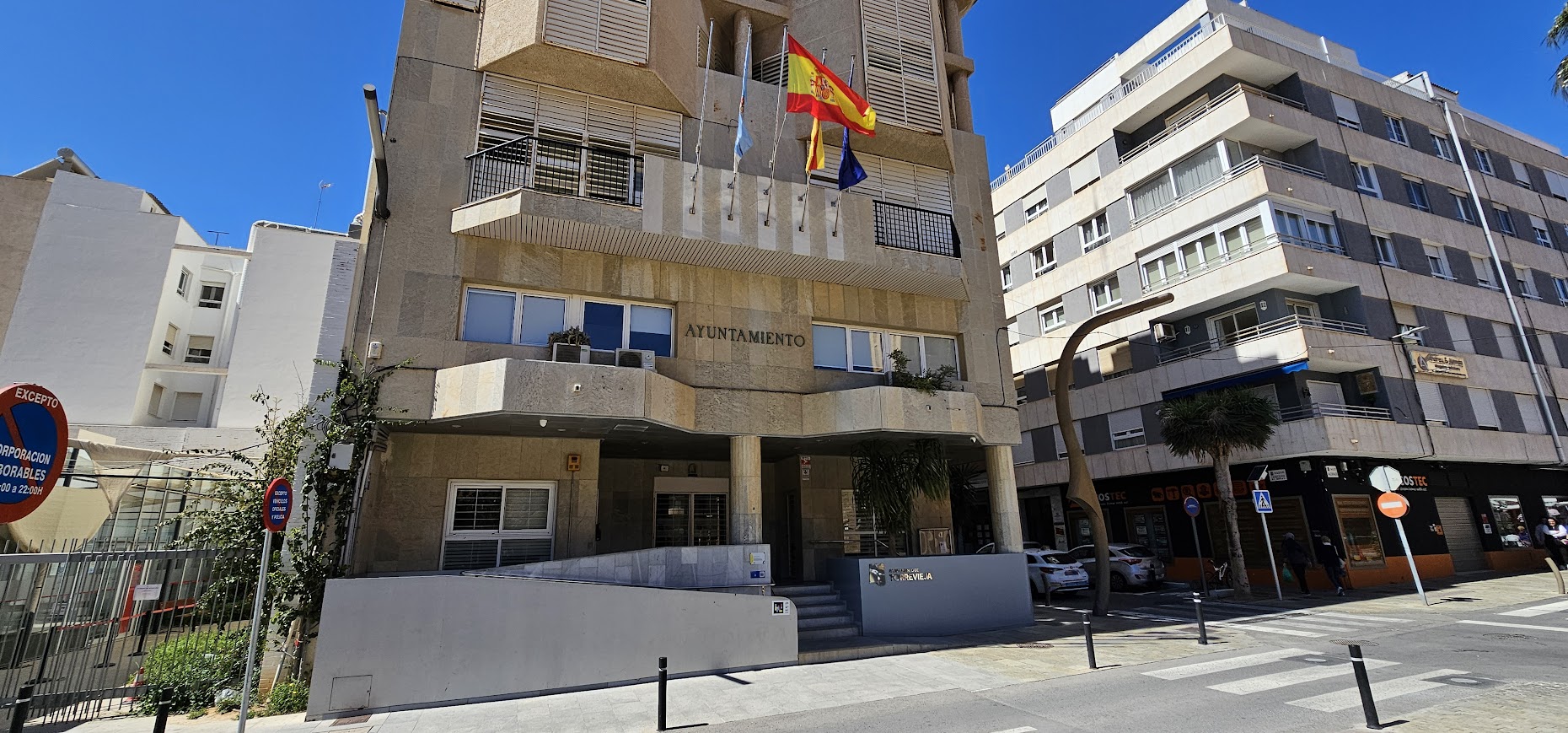
As part of the processing of the new European Regulation on the Common Fisheries Policy (CFP), Rosario Martínez Chazarra, spokesperson for the Popular Party Municipal Group, presented a motion in favour of the fishing industry, which the Ordinary Plenary Session of Torrevieja City Council approved on urgent grounds on Monday, March 31st. All political parties represented in the City Council (PP, PSOE, VOX, and Sueña Torrevieja) unanimously accepted the resolution.
The urgency is justified by the fact that the European Commission is now holding a public involvement procedure for the CFP regulation’s wording, and the administrative bodies of Member States have until April 21st, 2025, to submit their recommendations.
In Torrevieja, the fishing industry has a significant socioeconomic impact. Because of its significance as a food supply, its long history in the city, its close ties to generations of Torrevieja people, and its role in the landscape and economic activities of our municipality, it is a vital and crucial sector.
In order to guarantee the sustainability of EU fisheries from an environmental, economic, and social standpoint, the Common Fisheries Policy underwent its most recent update in 2013.
In addition to the implementation of other complementary measures like enhanced selectivity, closed areas, and seasons, among others, there has been a notable decrease in fishing effort, which has reached over 40% of fishing days. The Artisanal Coastal Fishing Fleet of the Valencian Community caught 25% more in 2024 than the year before. Between 2023 and 2024, the catch grew from 15,000 tonnes valued at €81.1 million to 19,035 tonnes valued at €94.3 million. It is clear that the Torrevieja fish market played a major role in reaching these catch values.
Despite these numbers, our municipality’s fishing vessels are in a precarious position as a result of recent Council of the European Union decisions that cut the number of fishing days to just 27 annually. This action renders the city’s fishing industry, which creates a significant number of direct and indirect jobs, unviable, despite its enormous social value.
As fishermen in the Valencian Community gathered 150,000 tonnes of trash, mostly plastic, from the Mediterranean Sea last year alone, Mediterranean fishing has substantial ecological and environmental value in our sea in addition to being a major economic, tourism, cultural, and culinary asset for our municipality.
In plenary, it was decided that the appropriate body would encourage the Spanish government to ask the European Commission for all of these reasons:
- A 25% increase in catches was made possible by the extension of the fishing season to 133 days.
* - Since the catch of almost 200 species cannot be dependent on criteria specified for just one, as is the case with hake, there should be greater transparency when determining the criterion for ongoing fishing.
* - Enhance and broaden the standards used to assess the true fishing stock of the entire group of species.
* - When making significant judgements, the industry should be considered, and these decisions should be made quickly. Their way of life cannot be drastically altered annually by a political decision made in December with little warning. Since fishing is also a business activity and should be subject to the same foresight as other economic activities, the procedures for changing the number of fishing days should be made public beforehand, and the regulated term should be 10 or five years.
* - That the time horizon for reaching maximum sustainable performance beyond 2030 should be delayed by limiting the margins of change to no more than 5 to 10% per year rather than the current 70% reduction.
* - Since this rule was designed for Atlantic fisheries, not Mediterranean fisheries, it is necessary to remove the requirement to land fish that are unsuited for sale.
* - Additionally, scientists with expertise in the Mediterranean should implement the Fisheries Commission’s internal recommendations.
Discover more from Costa Blanca Daily
Subscribe to get the latest posts sent to your email.
-

 Costa Blanca2 weeks ago
Costa Blanca2 weeks agoElche is seeking tender for an additional 22,000 plants, shrubs, and flowers from 150 different species
-

 Costa Blanca2 weeks ago
Costa Blanca2 weeks agoMan sought for robbery and fraud in Amsterdam has been caught in Alicante
-

 News2 weeks ago
News2 weeks agoTwo arrested in Elda for stealing from restaurants and hostels
-

 Costa Blanca2 weeks ago
Costa Blanca2 weeks agoIn Alicante, a criminal group that specialised in robberies at pharmacies and banks has been dismantled
-
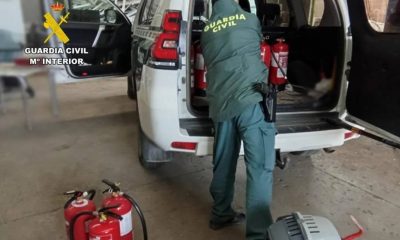
 Costa Blanca2 weeks ago
Costa Blanca2 weeks agoMan stole fire extinguishers to sell as scrap metal
-
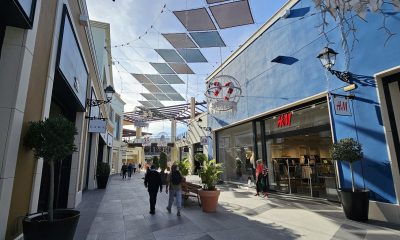
 Costa Blanca2 weeks ago
Costa Blanca2 weeks agoElche’s H&M shop closing
-
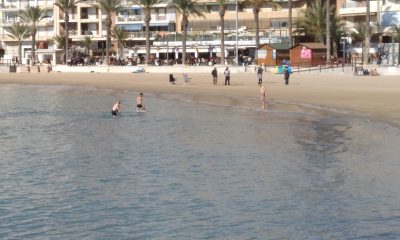
 Costa Blanca2 weeks ago
Costa Blanca2 weeks agoTorrevieja beach bars placed out to tender, but they won’t open until summer
-
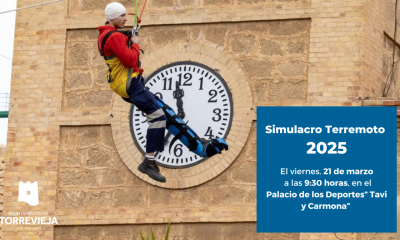
 News2 weeks ago
News2 weeks agoTorrevieja earthquake simulation CANCELLED







